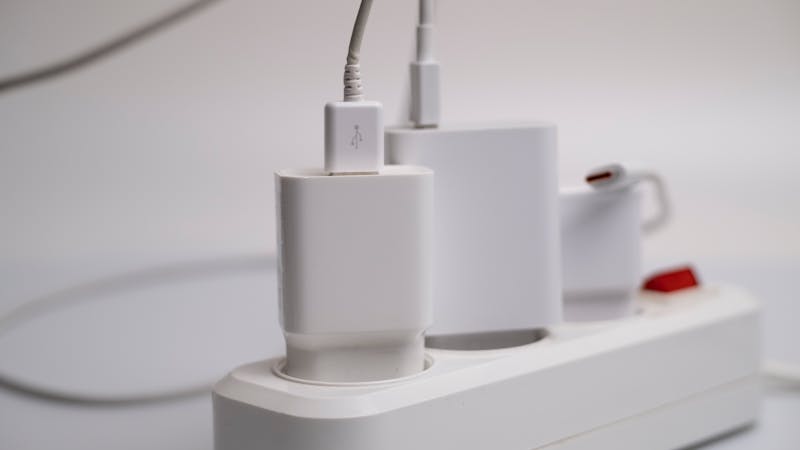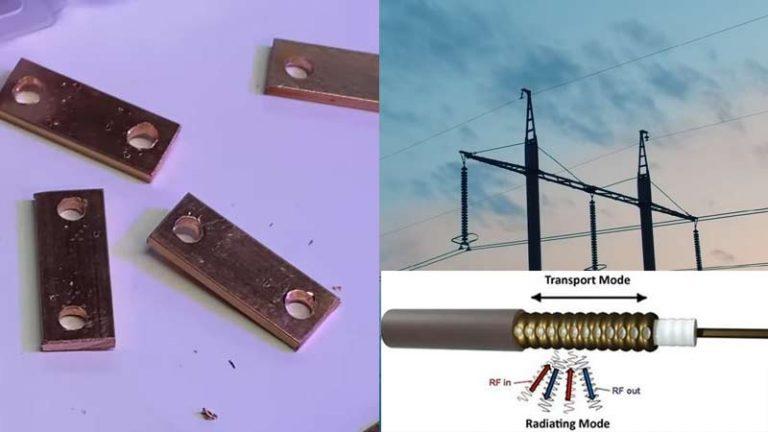Can You Plug a Dishwasher Into an Extension Cord? The Shocking Truth
You’ve just installed your new dishwasher, but the power cord is inches away from the wall outlet. The immediate, tempting solution is to grab a standard extension cord. It seems simple, but this common scenario raises a critical question: can you plug a dishwasher into an extension cord? While technically possible, it is extremely dangerous and strongly advised against by manufacturers, electricians, and safety codes.
This article explores the severe risks involved, explains the correct electrical requirements for a dishwasher, and provides safe, permanent solutions. Understanding these guidelines is crucial to preventing electrical fires and ensuring the safety of your home and family.
You'll Learn About
The Core Problem: Why Your Dishwasher and a Regular Extension Cord Don’t Mix
The central issue lies in the massive power demands of a dishwasher. Unlike a lamp or a phone charger, a dishwasher is a high-power appliance that combines a powerful motor for spraying water with a substantial heating element for drying dishes. This combination draws a significant and sustained electrical current, typically around 10 to 15 amps.
Standard household extension cords are simply not built to handle this kind of load for an extended period. Using one can lead to a cascade of dangerous failures, turning a convenience into a major hazard. The primary risks are overheating, melting, and potential fire.
Understanding Electrical Loads and Why They Matter
Every electrical wire has a specific thickness, or gauge, which determines how much electrical current (amperage) it can safely carry. A typical dishwasher requires a dedicated 15 or 20-amp circuit. This means the wiring in your wall is specifically sized to handle that load.
When you plug a high-power appliance into a thin, light-duty extension cord, the cord’s wires are too small for the amount of electricity being pulled through them. This resistance generates immense heat. The extension cord can become dangerously hot, melting the plastic insulation and creating a severe fire and shock hazard.
The “Official” Rules: What Manuals and Electrical Codes Say
Appliance manufacturers and national safety codes are clear on this subject. Virtually every dishwasher installation manual explicitly warns against the use of extension cords. Following these guidelines is not just a suggestion; it’s essential for safe operation and is often a condition of the appliance’s warranty.
The National Electrical Code (NEC), which sets the standard for safe electrical installation in the United States, requires most major appliances, including dishwashers, to be on a dedicated circuit. This ensures the appliance has sufficient power without overloading and competing with other devices. The NEC also mandates GFCI (Ground Fault Circuit Interrupter) protection for dishwasher outlets to prevent electrical shock in a wet kitchen environment.
What is a Dedicated Circuit?
A dedicated circuit is a circuit in your home’s electrical panel that serves only one appliance or outlet. This is a safety measure to prevent circuit overloads, which can cause breakers to trip or, in worse cases, wires to overheat.
Think of your home’s electrical system like a network of roads. A dedicated circuit is a private highway directly to your dishwasher, ensuring it gets all the power it needs without causing traffic jams. Sharing a circuit is like forcing that dishwasher to use a busy side street, leading to congestion and potential problems.
The Safe and Permanent Solutions for Your Dishwasher
Instead of reaching for an extension cord, you should pursue a permanent, safe, and code-compliant solution. This almost always requires the help of a qualified electrician, but the investment in safety is paramount.
Solution 1: Install a New, Properly Located Outlet
The best and most common solution is to have an electrician install a dedicated outlet in a location that the dishwasher’s factory-supplied cord can easily reach. The NEC specifies that a built-in dishwasher’s receptacle should be located in the space adjacent to the appliance, such as the under-sink cabinet.
An electrician can run a new wire from your breaker panel to the new outlet location, ensuring it’s the correct gauge and protected by the proper size breaker, including GFCI protection. This is the safest and most reliable way to power your appliance.
Solution 2: Hardwiring the Dishwasher
Another professional solution is to “hardwire” the dishwasher. This involves running the electrical cable from the dedicated circuit directly into the dishwasher’s junction box, creating a permanent connection without a plug or outlet.
This method is also perfectly safe and code-compliant when performed by an electrician. The choice between a hardwired connection and a dedicated outlet often comes down to local code requirements and the specific installation scenario.

What About “Appliance” Extension Cords? A Risky Last Resort
You may find heavy-duty “appliance” extension cords for sale, which are thicker and have higher amperage ratings than standard cords. While these are safer than a light-duty cord, they are intended for temporary use only and are not a substitute for proper wiring. Using one for a permanent installation is still against manufacturer recommendations and electrical codes.
If you absolutely must use an extension cord for a very short period (for example, to test the appliance before an electrician arrives), you must use one that meets specific requirements. It must be a 3-prong, grounded appliance extension cord, be as short as possible, and have a wire gauge appropriate for the load.
Choosing the Correct Wire Gauge
Wire gauge is measured by the American Wire Gauge (AWG) system, where a lower number indicates a thicker wire capable of carrying more current. For a dishwasher on a 15-amp circuit, you should use a 14-gauge cord at a minimum. For a 20-amp circuit, a 12-gauge cord is necessary. Never use a cord with a gauge higher than 14 for a major appliance.
This attention to electrical detail is crucial for all high-draw items in your home. For example, just as your dishwasher needs a dedicated power source, so too would high-power equipment for something like a home gym in an attic to operate safely and effectively.
| Wire Gauge (AWG) | Maximum Amperage | Typical Use | Suitability for Dishwasher |
|---|---|---|---|
| 16 Gauge | 13 Amps | Lamps, light-duty tools, small electronics | Dangerous – Do Not Use |
| 14 Gauge | 15 Amps | Power tools, major appliances (temporary) | Minimum for temporary use on 15A circuit |
| 12 Gauge | 20 Amps | Heavy-duty tools, high-power appliances | Recommended for temporary use on 20A circuit |
| 10 Gauge | 30 Amps | RV power, industrial equipment | Overkill, but safe |
Beyond Electrical: Other Dishwasher Installation Safety Checks
Properly powering your dishwasher is only one part of a safe installation. You also need to ensure the water connections are secure. A loose plumbing fitting can cause significant water damage. If you ever encounter issues with plumbing connections, such as with certain push-to-connect fittings, knowing how to stop a SharkBite from spinning can be a useful skill for minor repairs around the house.
Additionally, consider the overall energy consumption in your home. Your dishwasher’s heating element is a major power consumer, similar to an electric water heater. Optimizing your home’s hot water system, perhaps by looking into a timer for a tankless water heater, can contribute to overall energy efficiency and reduce the load on your electrical system.
Frequently Asked Questions
Is it safe to plug a dishwasher into a regular extension cord?
No, it is not safe to plug a dishwasher into a standard extension cord. Dishwashers draw a significant amount of power, which can cause a regular cord to overheat and potentially start a fire. Extension cords are generally intended for temporary use with lower-power appliances.
What are the risks of using an extension cord with a dishwasher?
The primary danger is a fire hazard due to the cord overheating and melting. Another major risk is electrical shock, as any water leakage near the extension cord connection can be extremely dangerous. Using an unapproved cord may also void your dishwasher’s warranty.
Are there any special extension cords that are safe for a dishwasher?
While it is strongly advised against, if an extension cord is absolutely necessary for a portable dishwasher, it must be a heavy-duty, 3-wire, 15-amp cord with a standard 3-prong grounding plug. However, this is not a recommended permanent solution for built-in dishwashers. A dedicated electrical circuit is the safest option.
What is the correct way to install a dishwasher?
A built-in dishwasher should be connected to a dedicated 120V circuit. This can be done by either hardwiring the appliance directly or plugging it into a properly installed grounded outlet located in a space adjacent to the dishwasher.
Final Checklist Before You Run Your Dishwasher
- Check the Manual: Always read the manufacturer’s installation instructions first. They will specify the exact electrical requirements.
- Verify the Circuit: Confirm the dishwasher is on a dedicated 15 or 20-amp circuit with GFCI protection.
- Inspect the Cord: Never use the dishwasher if its factory cord is damaged. Order a manufacturer-approved replacement.
- Avoid Extension Cords: Do not use an extension cord for a permanent installation under any circumstances.
- Hire a Professional: When in doubt, always call a licensed electrician. The cost of a professional installation is minimal compared to the cost and danger of an electrical fire.
In conclusion, the answer to “can you plug a dishwasher into an extension cord” is a firm no for any permanent setup. The fire risk from overloading a standard cord is far too great. The only safe and correct methods are to plug the dishwasher directly into a properly installed dedicated outlet or to have it professionally hardwired. Prioritizing electrical safety protects your appliance, your home, and your peace of mind.

